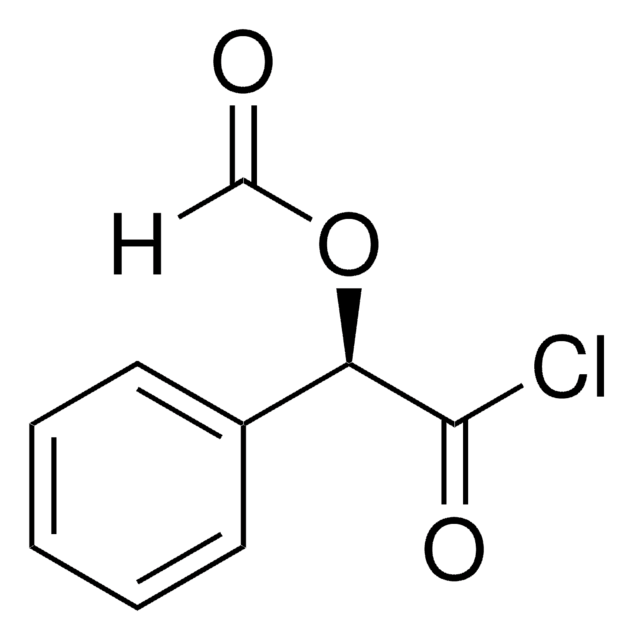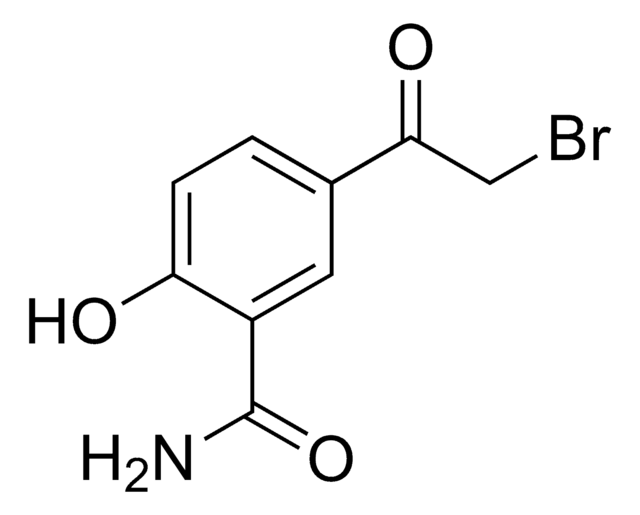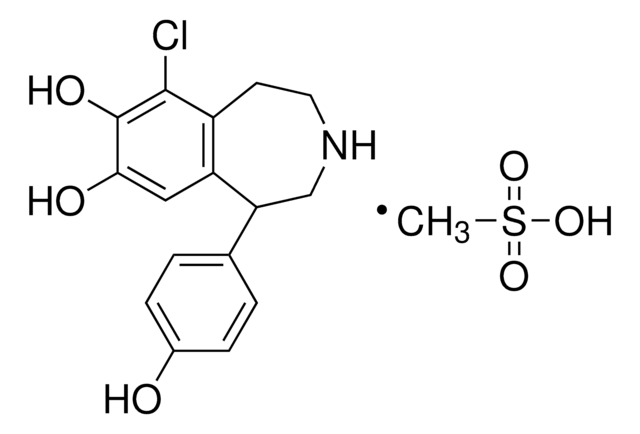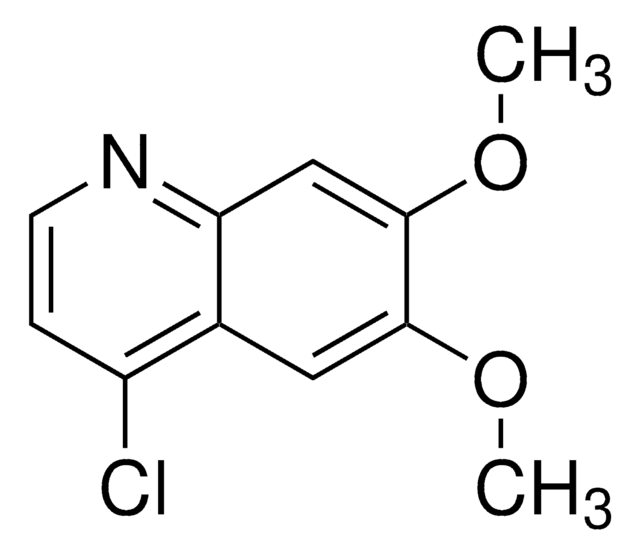CDS019977
Aldol
AldrichCPR
Iniciar sesiónpara Ver la Fijación de precios por contrato y de la organización
About This Item
Fórmula empírica (notación de Hill):
C4H8O2
Peso molecular:
88.11
Número CE:
Número MDL:
Código UNSPSC:
12352200
ID de la sustancia en PubChem:
Productos recomendados
formulario
liquid
cadena SMILES
CC(O)CC=O
InChI
1S/C4H8O2/c1-4(6)2-3-5/h3-4,6H,2H2,1H3
Clave InChI
HSJKGGMUJITCBW-UHFFFAOYSA-N
Otras notas
Please note that Sigma-Aldrich provides this product to early discovery researchers as part of a collection of unique chemicals. Sigma-Aldrich does not collect analytical data for this product. Buyer assumes responsibility to confirm product identity and/or purity. All sales are final.
NOTWITHSTANDING ANY CONTRARY PROVISION CONTAINED IN SIGMA-ALDRICH′S STANDARD TERMS AND CONDITIONS OF SALE OR AN AGREEMENT BETWEEN SIGMA-ALDRICH AND BUYER, SIGMA-ALDRICH SELLS THIS PRODUCT "AS-IS" AND MAKES NO REPRESENTATION OR WARRANTY WHATSOEVER WITH RESPECT TO THIS PRODUCT, INCLUDING ANY (A) WARRANTY OF MERCHANTABILITY; (B) WARRANTY OF FITNESS FOR A PARTICULAR PURPOSE; OR (C) WARRANTY AGAINST INFRINGEMENT OF INTELLECTUAL PROPERTY RIGHTS OF A THIRD PARTY; WHETHER ARISING BY LAW, COURSE OF DEALING, COURSE OF PERFORMANCE, USAGE OF TRADE OR OTHERWISE.
NOTWITHSTANDING ANY CONTRARY PROVISION CONTAINED IN SIGMA-ALDRICH′S STANDARD TERMS AND CONDITIONS OF SALE OR AN AGREEMENT BETWEEN SIGMA-ALDRICH AND BUYER, SIGMA-ALDRICH SELLS THIS PRODUCT "AS-IS" AND MAKES NO REPRESENTATION OR WARRANTY WHATSOEVER WITH RESPECT TO THIS PRODUCT, INCLUDING ANY (A) WARRANTY OF MERCHANTABILITY; (B) WARRANTY OF FITNESS FOR A PARTICULAR PURPOSE; OR (C) WARRANTY AGAINST INFRINGEMENT OF INTELLECTUAL PROPERTY RIGHTS OF A THIRD PARTY; WHETHER ARISING BY LAW, COURSE OF DEALING, COURSE OF PERFORMANCE, USAGE OF TRADE OR OTHERWISE.
Palabra de señalización
Danger
Frases de peligro
Consejos de prudencia
Clasificaciones de peligro
Acute Tox. 2 Dermal - Eye Irrit. 2
Código de clase de almacenamiento
6.1B - Non-combustible acute toxic Cat. 1 and 2 / very toxic hazardous materials
Clase de riesgo para el agua (WGK)
WGK 3
Punto de inflamabilidad (°F)
Not applicable
Punto de inflamabilidad (°C)
Not applicable
Certificados de análisis (COA)
Busque Certificados de análisis (COA) introduciendo el número de lote del producto. Los números de lote se encuentran en la etiqueta del producto después de las palabras «Lot» o «Batch»
¿Ya tiene este producto?
Encuentre la documentación para los productos que ha comprado recientemente en la Biblioteca de documentos.
Naoki Ishida et al.
Angewandte Chemie (International ed. in English), 57(35), 11399-11403 (2018-07-19)
An electronically neutral 2-arylsilacyclobutane generates a nucleophilic carbanion at room temperature through cleavage of the benzylic C-Si bond when simply dissolved in polar aprotic solvents such as N,N-dimethylformamide (DMF). The nucleophilic species is capable of capturing carbon dioxide to furnish
Christian Merten et al.
The Journal of organic chemistry, 84(14), 8797-8814 (2019-05-03)
Vibrational circular dichroism (VCD) spectroscopy is one of the most powerful techniques for the determination of absolute configurations (AC), as it does not require any specific UV/vis chromophores, no chemical derivatization, and no growth of suitable crystals. In the past
Rocco Moretti et al.
Protein science : a publication of the Protein Society, 27(1), 259-268 (2017-09-30)
The Rosetta molecular modeling software package provides a large number of experimentally validated tools for modeling and designing proteins, nucleic acids, and other biopolymers, with new protocols being added continually. While freely available to academic users, external usage is limited
Christopher P Lakeland et al.
Chemistry (Weinheim an der Bergstrasse, Germany), 26(1), 155-159 (2019-10-28)
Sydnone-based cycloaddition reactions are a versatile platform for pyrazole synthesis, however they operate under harsh conditions (high temperature and long reaction times). Herein we report a strategy that addresses this limitation utilizing the synergistic combination of organocatalysis and visible-light photocatalysis.
Immacolata Luisi et al.
PloS one, 8(2), e56469-e56469 (2013-03-02)
We have identified a 101-amino-acid polypeptide derived from the sequence of the IIA binding site of human albumin. The polypeptide contains residues that make contact with IIA ligands in the parent protein, and eight cysteine residues to form disulfide bridges
Nuestro equipo de científicos tiene experiencia en todas las áreas de investigación: Ciencias de la vida, Ciencia de los materiales, Síntesis química, Cromatografía, Analítica y muchas otras.
Póngase en contacto con el Servicio técnico








